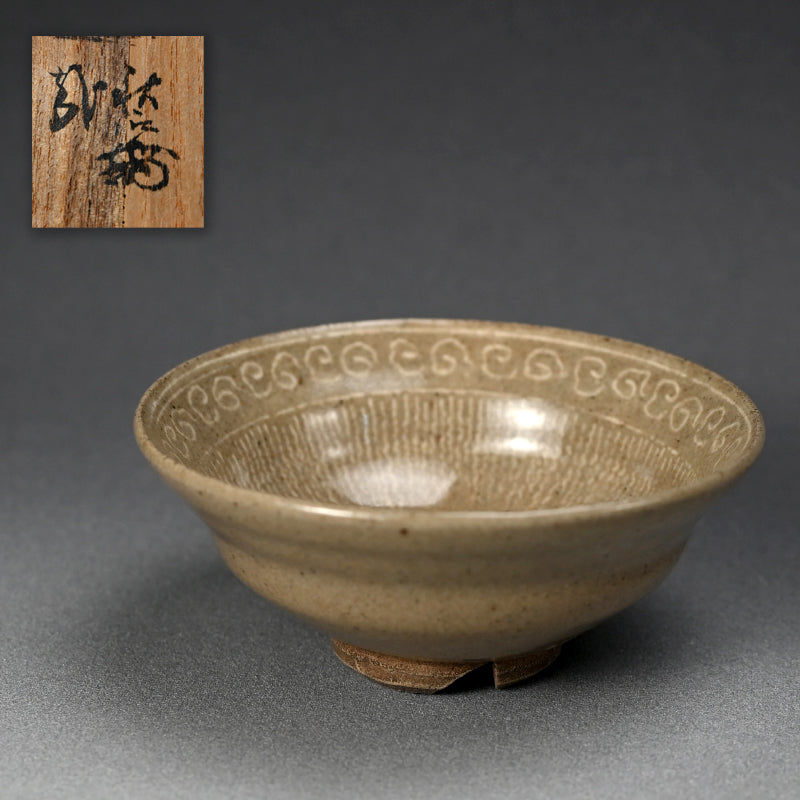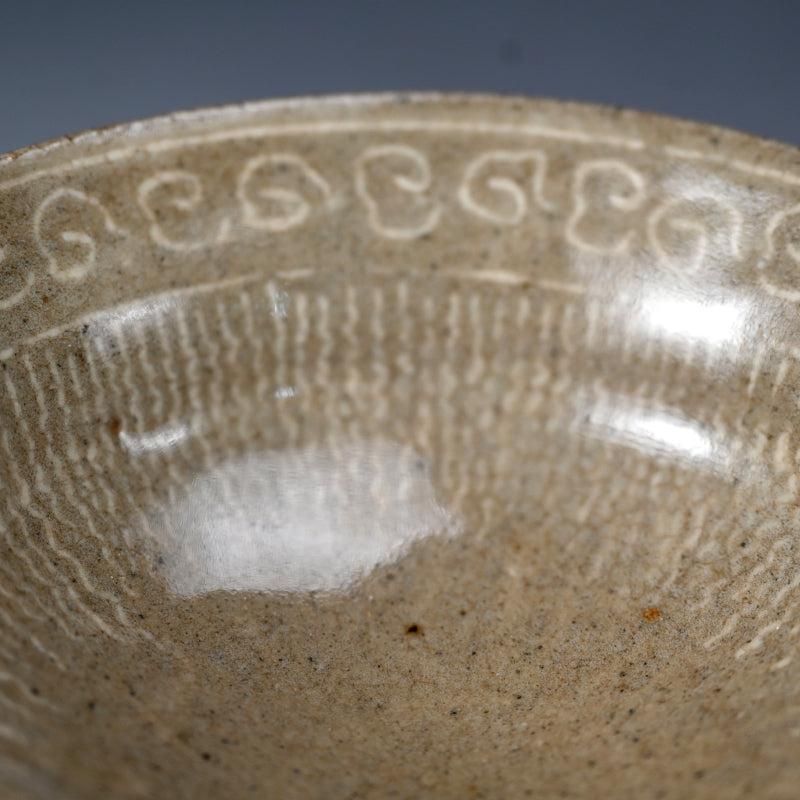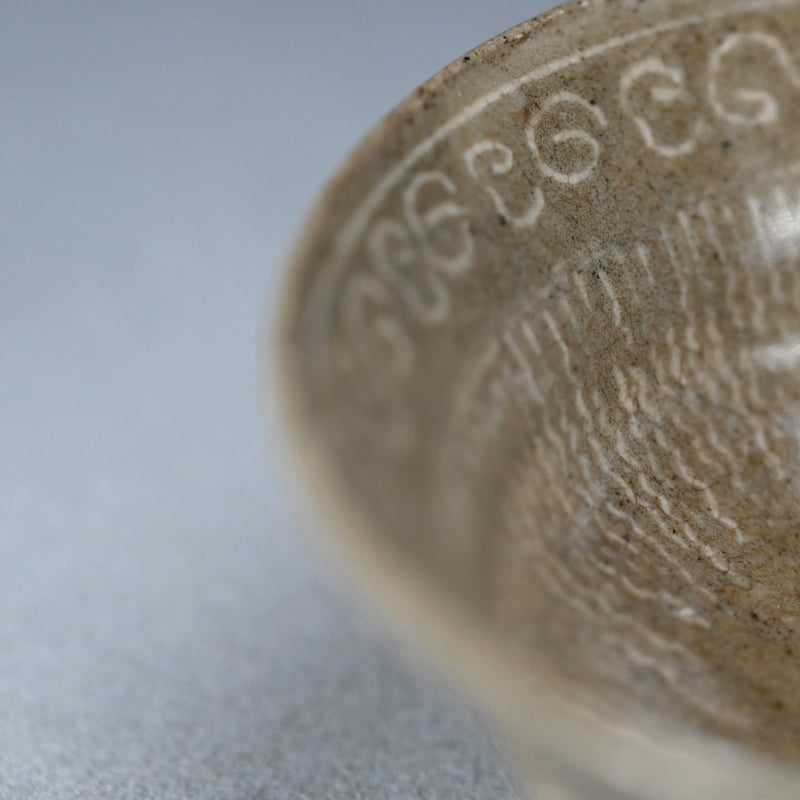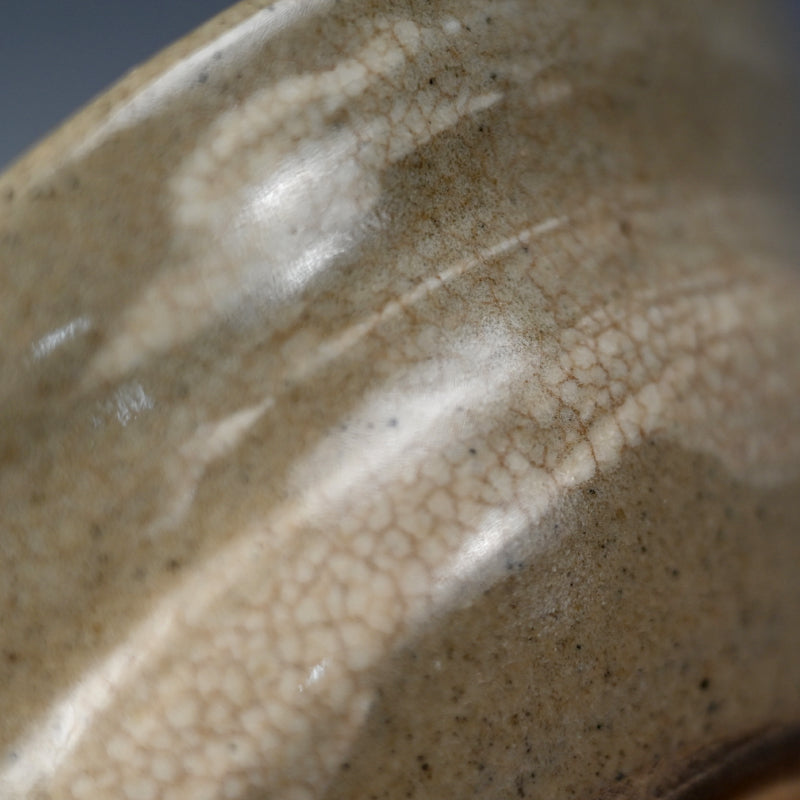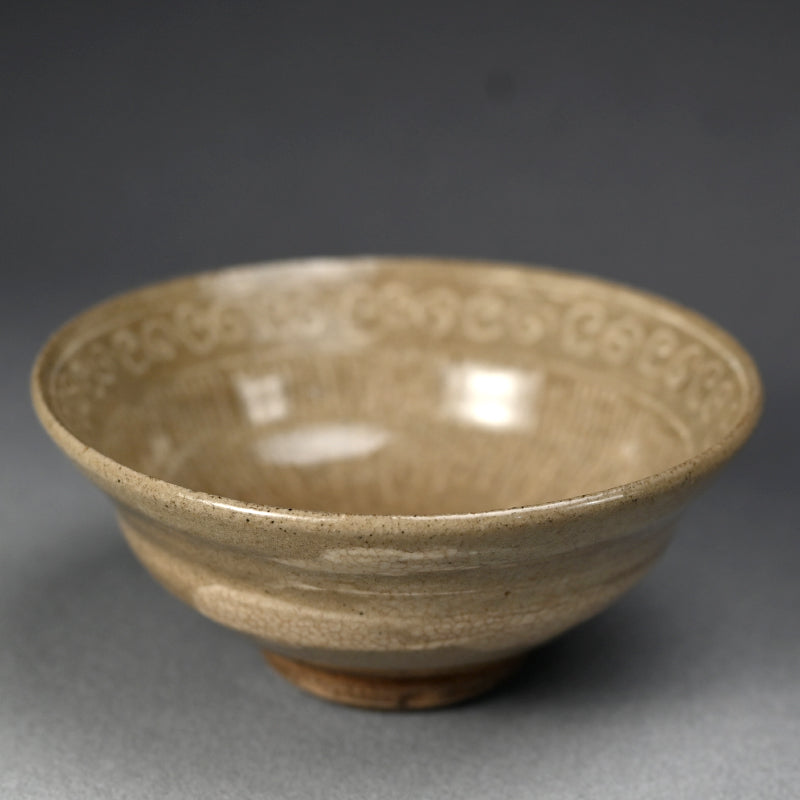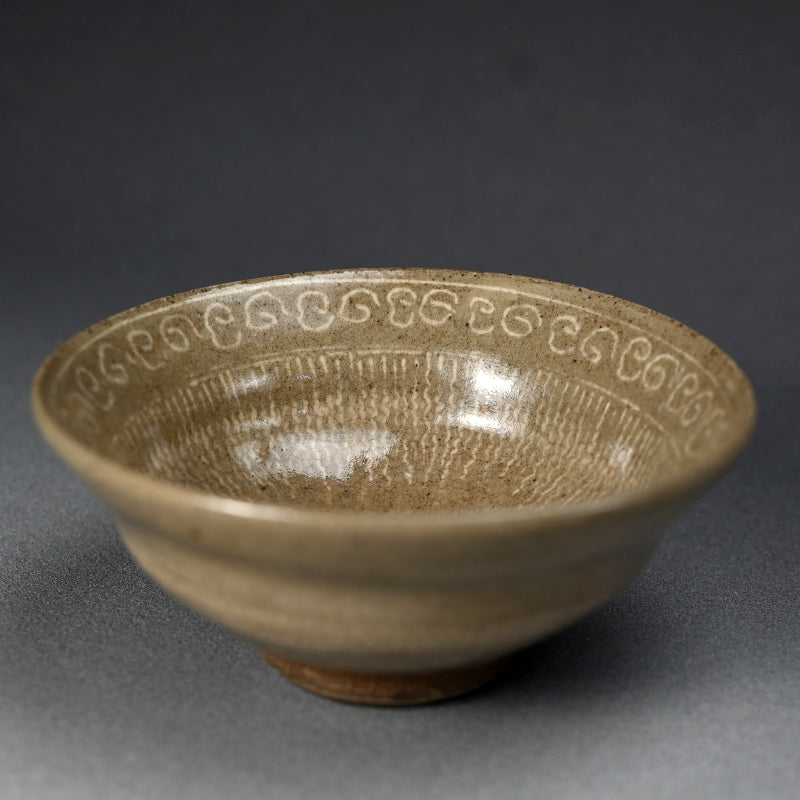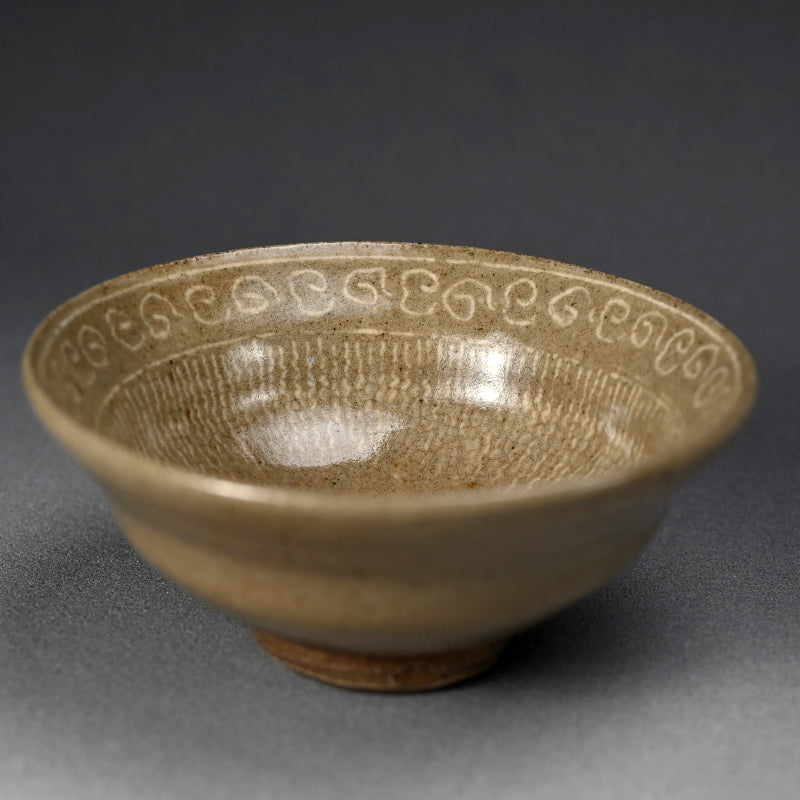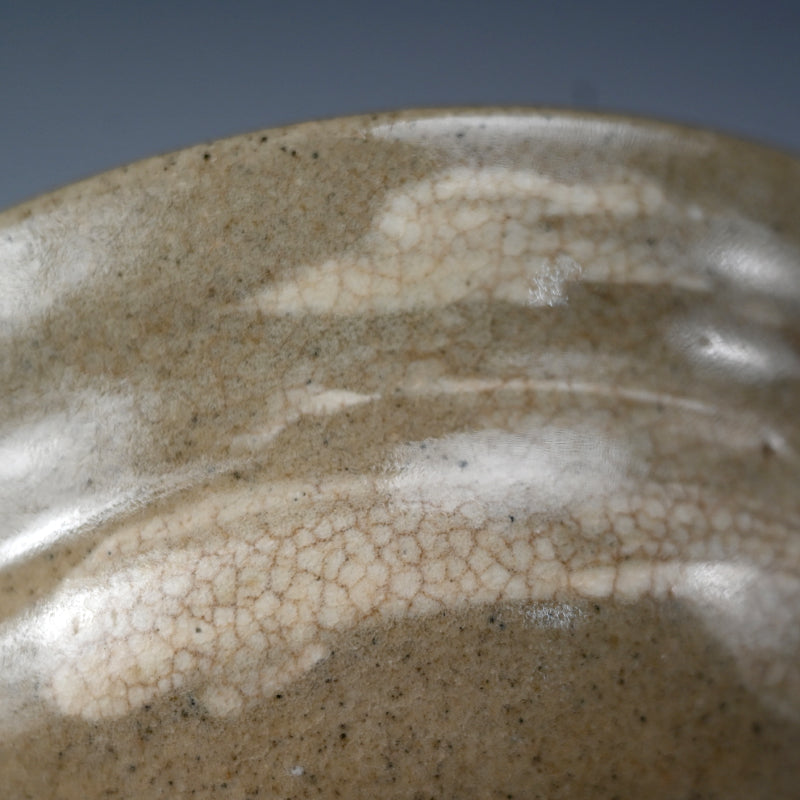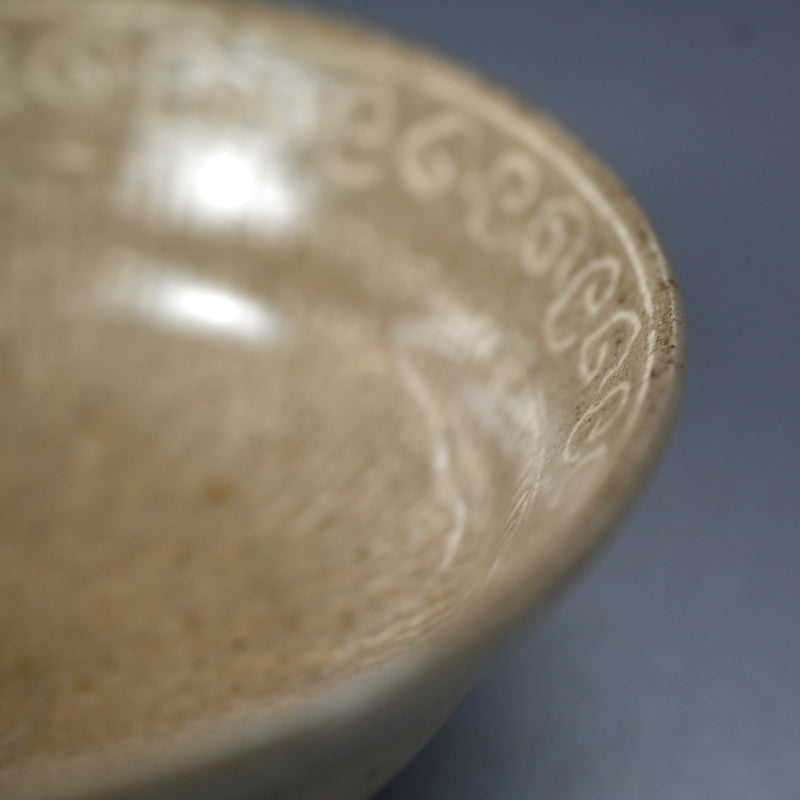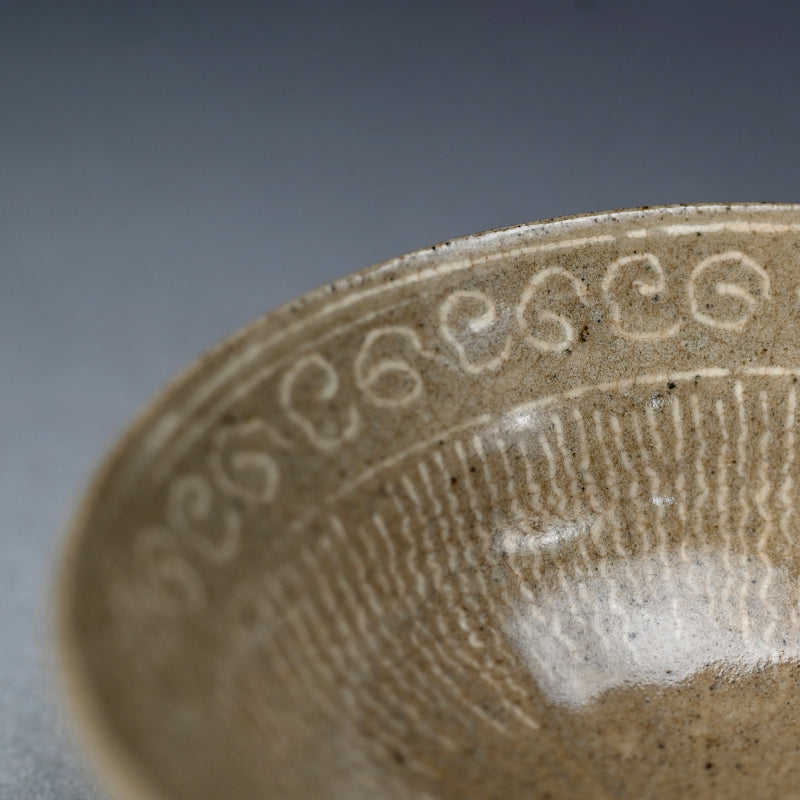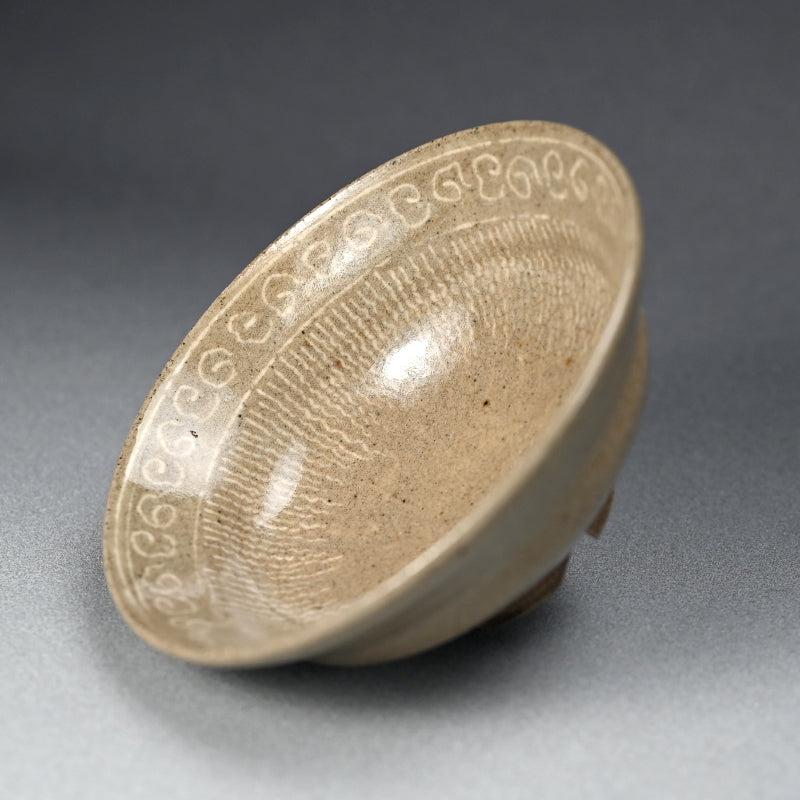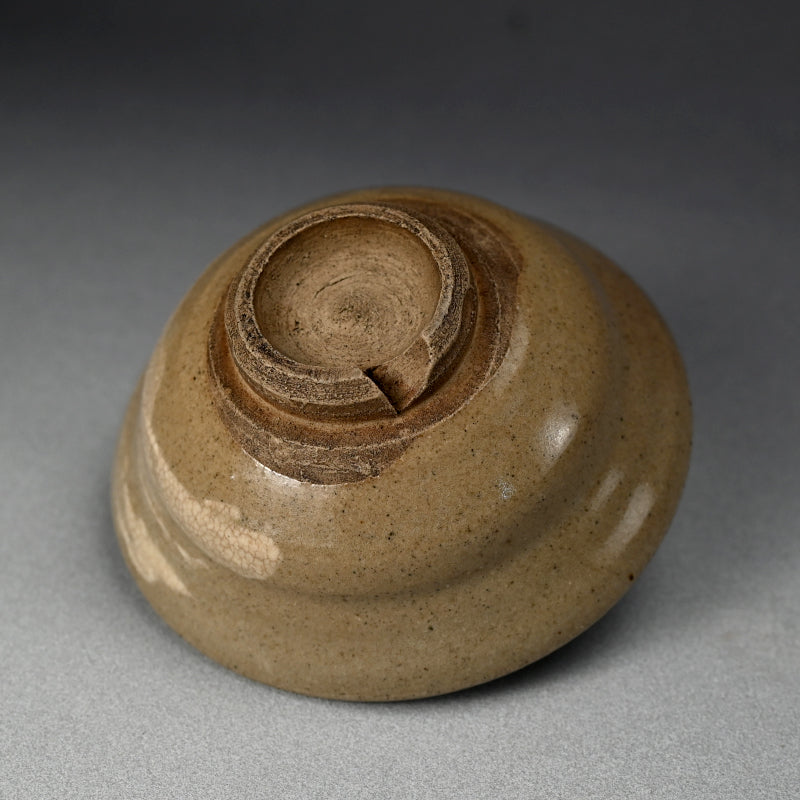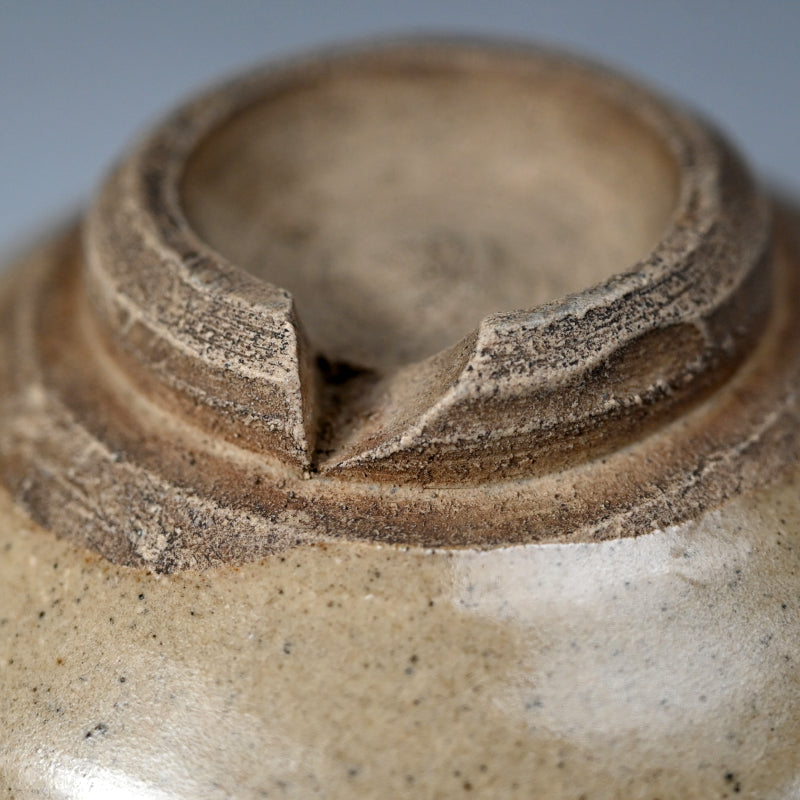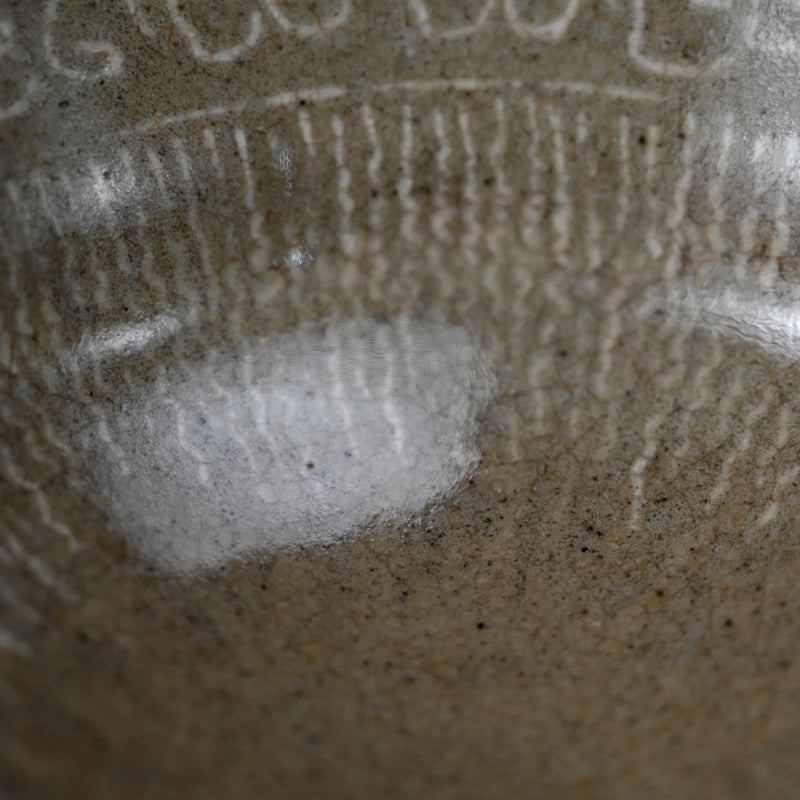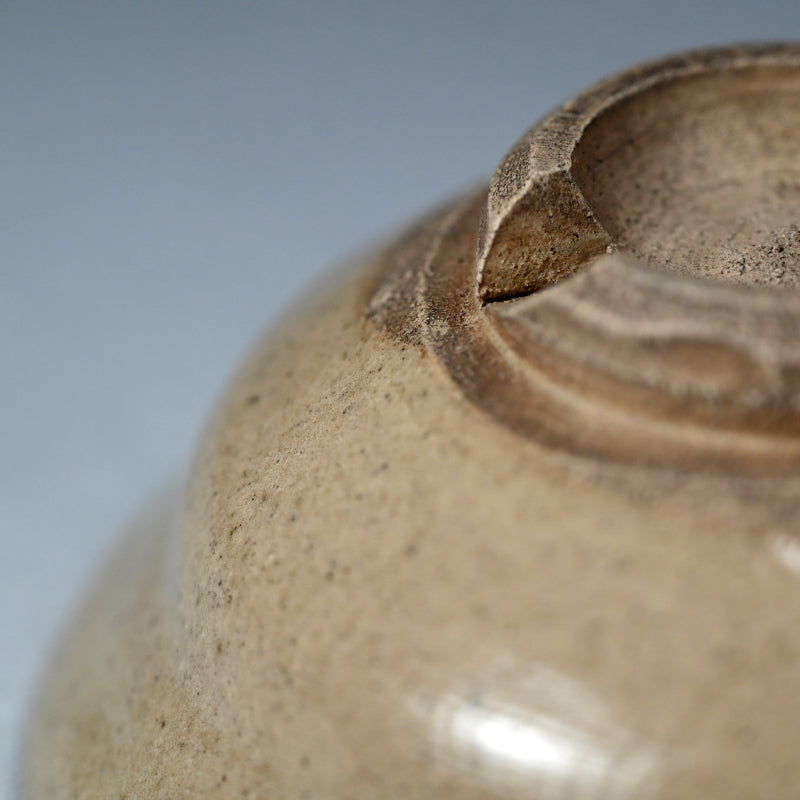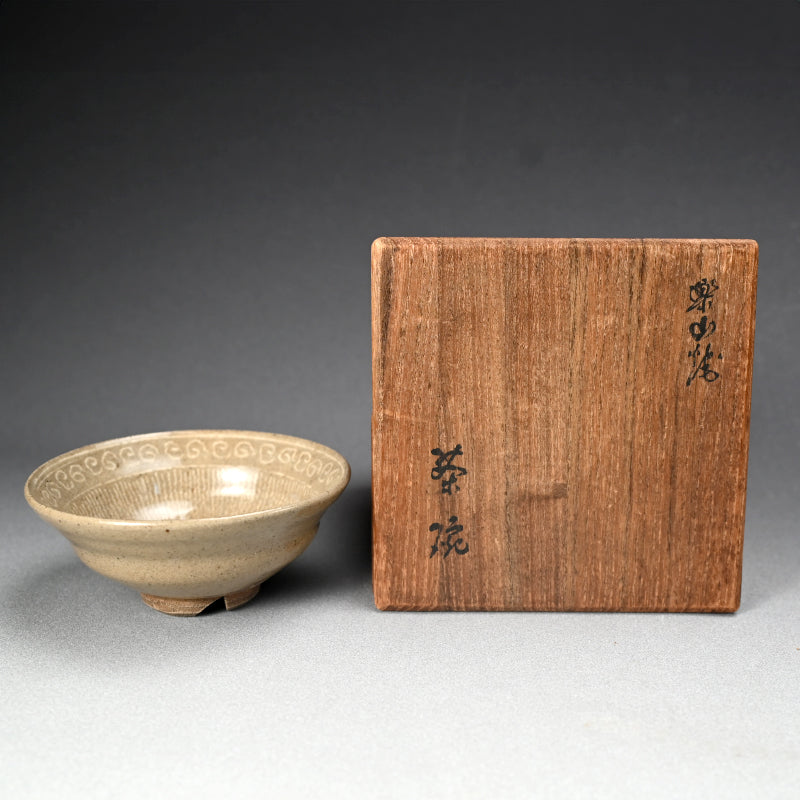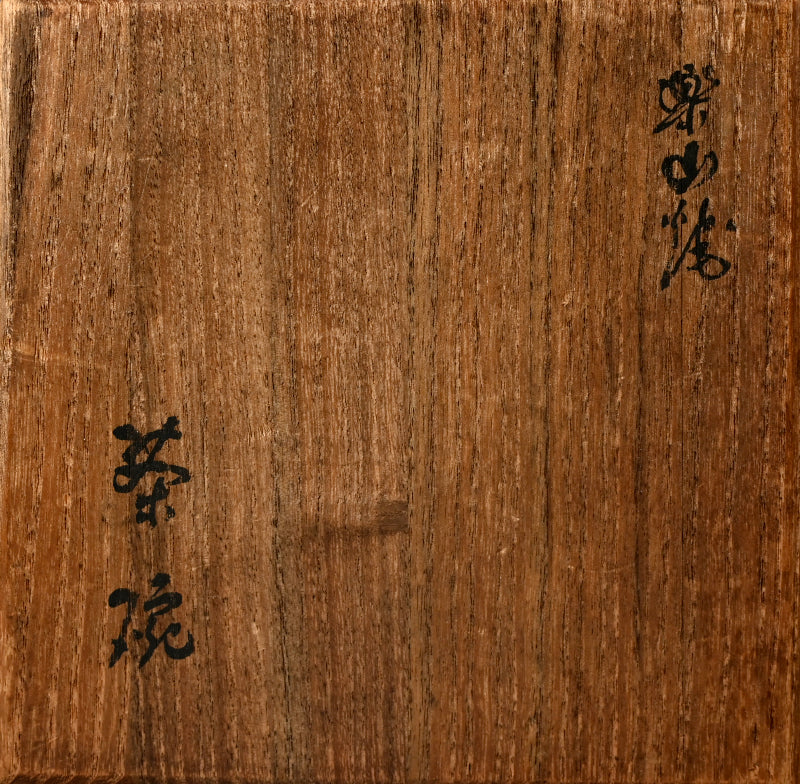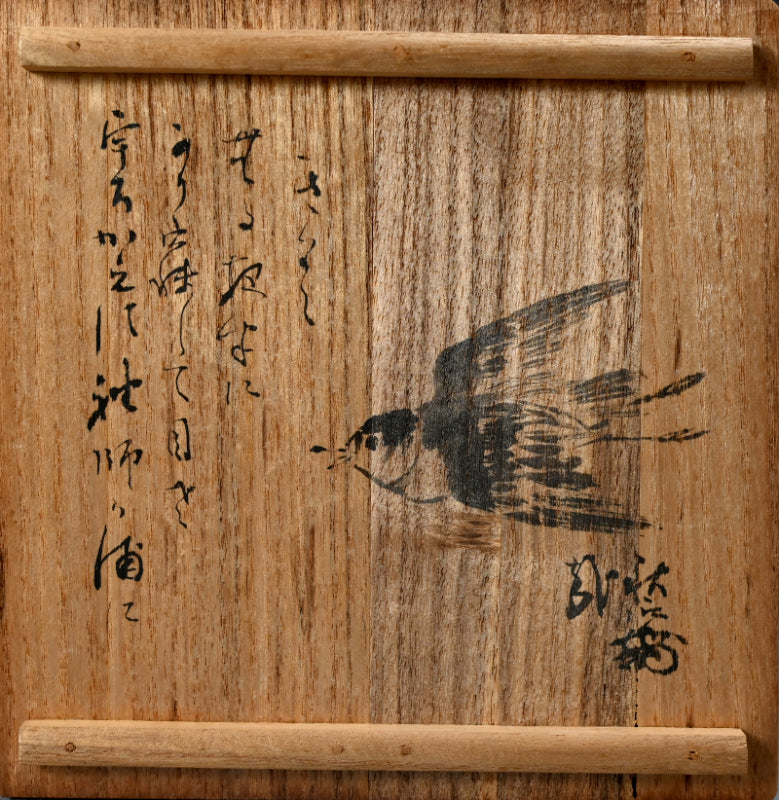Antique, Japanese Rakuzan Yaki Chawan Tea bowl
Antique, Japanese Rakuzan Yaki Chawan Tea bowl
Item Code: KN052
Couldn't load pickup availability
A beautiful 19th century Mishima stule Hakeme-chawan inlayed with designs in white slip from the Rakuzan kilns of Shimane prefecture. It comes in a silk lined cloth pouch enclosed in an old kiri-wood box tuitled Rakuzan Yaki Chawan. Inside the lid is a poem accompanied by a painting of a soaring bird. It is 13.6 cm (5-1/2 inches) diameter, 6 cm (2-1/2 inches) tall and in excellent condition.
Rakuzan pottery falls under the umbrella of Fushina or Fujina Yaki, the Goyogama clan kiln of the Matsudaira of Matsue in modern day Izumo, sometimes simply called Izumo-yaki. The origin of Rakuzan ware lies in the early Edo period, when the second generation Matsudaira Tsunataka requested a Hagi ware potter from the neighboring Mori clan, which was eventually granted to the third generation Izumo leader Matsudaira Tsunachika around 1677. The founders of the kiln were Kurasaki Gonbei and Kada Hanroku. Although under continuous production, the kiln had its ups and downs until it was strongly revived by the 8th Lord of Matsue, Matsudaira Harusato (Fumaiko 1751-1818) Daimyo of the province. From then it fell strongly under his aesthetic taste. Flagging in the late 19th century, artists such as the great scholar and Nanga artist Tanomura Chokunyu sought to revitalize it, and came to Shimane to decorate the works or to teach decoration and painting techniques. It became an important influence on the Mingei movement and was visited by Bernard Leach, Hamada Shoji and Kawai Kanjiro in the early 20th century.
Share



















